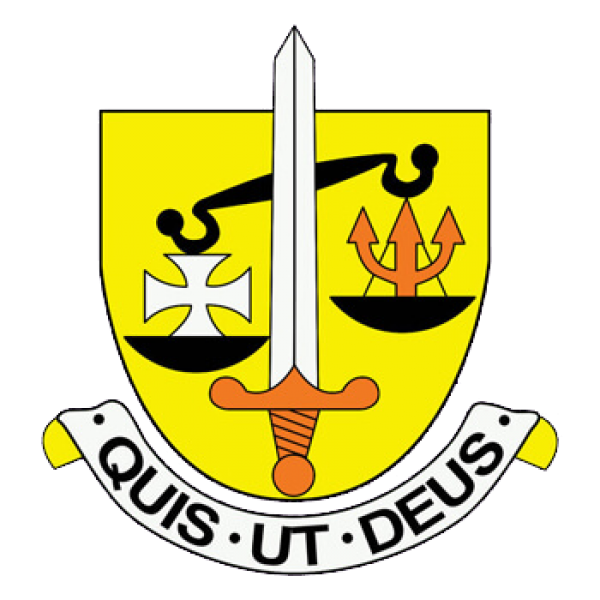Key Stage 3
THE CURRICULUM VISION FOR KS3
The KS3 curriculum is designed to engage, challenge and inspire our gifted students.
The Catholic Ethos is at the heart of our curriculum and Religious Studies lessons are an opportunity for our pupils to explore, discuss and understand their own faith. All classes lead a Mass on Friday lunchtime and pupils take an active part in whole school, masses, contributing as altar servers, musicians and performers. The pupils learn about other world faiths both through their classroom experience and first hand by visiting other places of worship.
Our pupils have developed skills and show great passion towards the subjects of Maths and English and this is nurtured and developed at KS3. Lessons are challenging and fast paced and help pupils to progress to the next level. Science is a popular subject and the pupils enjoy the opportunity of taking part in practical experiments and seeing the concepts they are studying in their theory lessons. Pupils like to engage in these subjects during lunchtime clubs taking part in Science club and debate club and attending maths clinic to support their learning. Maths challenges are also an important part of the enrichment and enable them to work in teams and problem solve. Learning outside the classroom is also encouraged at KS3 with trips to the National History Museum and London Zoo.
History and Geography are an important part of the curriculum. Pupils study History in an interactive and engaging way in the classroom working in different ways to increase depth of knowledge and the skills needed to be a good historian. The rich historical opportunities available in London are utilised fully with history visits to the Tower of London and St Pauls Cathedral. Geography lessons explore physical and human geography and theoretical learning is enhanced by field trips so pupils can further develop their skills.
Languages are valued at St Michaels as an opportunity for our pupils to engage in our worldwide community. French is taught from Year 7 and pupils are also given taster lessons in Spanish and Italian so that they can continue with two modern foreign languages in Year 8 and 9. Latin is also studied in Year 8 and 9 as it develops our pupils understanding of the structure of languages as well as developing intellectual and analytical capabilities.
The Arts are celebrated at St Michael’s with lessons in Art, Drama and Music throughout KS3. Extra-curricular activities are popular with pupils taking part in orchestra, bands and choirs as well as being involved in combined Arts projects like the school musical. Performances are frequent in the school calendar in order to showcase the range of talent our pupils display and pupils are taken to the Theatre to enhance their own artistic development. The Art department extends our pupils understanding of different mediums of Art and developing their artistic talents. Our pupil’s cultural capital is increased by having workshops in school with professional artists and regular visits to art galleries. Dance skills are also developed both in PE lessons and through extra-curricular opportunities with dance groups competing regularly in dance competitions.
Our pupils excel at PE and the curriculum enables pupils to train and compete at the highest level. Pupils excel at inter school tournaments and progress to county and national championships in a variety of sports. Pupils also use the Sports Hall and Gym in extracurricular time to develop a healthy body and for relaxation to develop a healthy mind.
All pupils study Design and Technology and Food and Nutrition at KS3. The practical and creative aspects of Food and Nutrition inspire many of our students and an understanding of nutrition is an essential life skill. Design and Technology develops our pupils critical thinking and innovation skills as well as practical knowledge of construction and manufacturing processes that are transferable to a range of careers.
Computer Science is studied by all students at KS3 and provides them with transferable skills vital to other subjects and in their future careers. Creative opportunities using computer software are particularly popular with our pupils.
Cross curricular links are an essential part of the KS3 Curriculum, connections are made between different subject areas to help pupils make links between different subject areas. These connections are evident particularly in the Year 8 Cross Curricular Trip which all pupils attend and explores different subject areas during a four-day residential trip.
Underpinning all of these curriculum areas is our pastoral curriculum which helps develop resilience and life skills for our pupils. RSE and Citizenship lessons are taught by pastoral leaders and form tutors explore a range of subjects essential for pupils understanding, development, health and happiness.
The broad and balanced curriculum at KS3 acknowledges that all our pupils are individuals and is designed to give them every opportunity to fulfil their potential and become the person God wishes them to be.
List of Subjects Studied. In Year 7 the pupils follow a general course of study including:
- Religious Education
- English
- Mathematics
- Computer Science
- French
- History
- Geography
- Integrated Science
- Music
- Art
- P.E.
- Drama
- Design and Technology
- Food and Nutrition
- Education for Living with Citizenship
- Pupils also follow a taster course in Spanish and Italian.
In Year 8 the curriculum is widened to include a second modern language (Italian or Spanish) and Latin – these subjects are then continued into Year 9.

